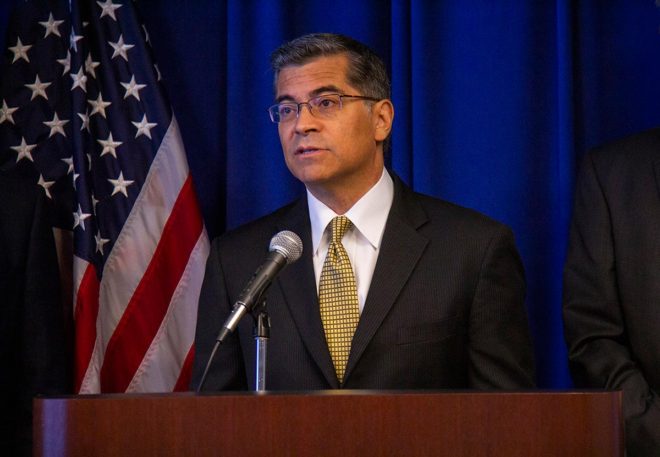
Following New York Attorney General Letitia James’ announcement that she won’t be appealing the judge’s decision to allow T-Mobile and Sprint’s merger to go forward, California’s AG has now made a similar announcement.
California Attorney General Xavier Becerra will not appeal the judge’s decision last month to reject the state AGs’ lawsuit against the T-Mobile-Sprint merger. Becerra announced today that the California Department of Justice has struck a deal with T-Mo and Sprint regarding their merger.
Here are the requirements that T-Mobile must meet as part of its settlement with California:
- Make its low-cost T-Mobile Connect plans available in California for at least 5 years. These plans include 2GB of data for $15 per month and 5GB for $25.
- T-Mobile customers can keep their T-Mobile plans held in February 2019 for a total of five years.
- Project 10 Million, part of the New T-Mobile Un-carrier 1.0 move that will offer a free hotspot device and 100GB of free broadband internet per year for five years to 10 million low-income households. These households can also purchase select Wi-Fi tablets at cost.
- All current T-Mobile and Sprint employees in California must receive an offer of “substantially similar employment” with New T-Mobile. Also, the number of New T-Mobile employees in California will be equal to or greater than the current number of T-Mobile and Sprint employees.
- Open a new customer support center in Kingsburg, CA that will create approximately 1,000 new jobs.
- Increase participation in employee Diversity and Inclusion program to 60% within 3 years.
- Reimburse California and other states that participated in merger lawsuit for the costs of the investigation and litigation, up to a total of $15 million.
Becerra and James were the two state AGs leading the lawsuit against the T-Mobile-Sprint merger. The two announced their lawsuit to block the merger back in June 2019, arguing that the deal would “substanitally” lessen competition in wireless, that prices would be higher, and that there would be a “substantial loss” of retail jobs.
The trial began in December 2019 with 14 state attorneys general opposing the deal, including New York and California. Judge Victor Marrero ultimately rejected the states’ lawsuit, saying in his ruling that the merger is not likely to lessen competition and that Sprint “does not have a sustainable long-term competitive strategy.”
While T-Mobile and Sprint’s merger has cleared most of the hurdles on its way to completion, there are still a couple of things standing in its way. The California Public Utilities Commission is the final of 19 state PUCs that need to weigh in on the deal, and the CPUC has said that it won’t make a final decision until April 16th.
The merger is also facing a Tunney Act review for any possible antitrust concerns. It’s unclear when Judge Timothy Kelly, who is conducting the review, will reach a decision.
T-Mobile has said that its merger could close as soon as April 1st, but with Kelly being quiet about his ruling and the CPUC waiting until April 16th to make its decision, hitting that April 1st merger closure could be difficult.
